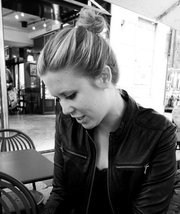Harare International Festival of the Arts: Zimbabwe's artistic community navigate carefully around state censorship.
This article was written for Think Africa Press with Capucine Dayen
Harare, Zimbabwe:
The struggle against censorship for artists performing at last week's Harare International Festival of the Arts (HIFA) is nothing new. Since HIFA first opened its doors 13 years ago, Zimbabwe’s notorious Central Intelligence Organisation (CIO) has been keeping a close eye on the event. Yet, despite government intimidation, Zimbabwe’s biggest cultural event continues to grow and offer artists increased local and international exposure.
Behind the scenes, HIFA’s organisers are consistently confronted by what the festival founder Manuel Bagorro describes as “fairly formidable challenges” and Zimbabwe’s artistic community always breathes a sigh of relief at each opening.
HIFA’s appeal is wide-reaching and cultural activist Comrade Fatso explains why. “We’re in an environment which is oppressive. People need on the one hand a release from it, whether a piano recital or a powerful mbira concert and, on the flip side, a political comedy or theatre performance with a social or political message.”
“No, no, there's no naming names”
While some performances at HIFA purposefully remain ambiguous, Zimbabwe’s main news of the day takes an overtly satirical twist in the play Zambezi News. The dry tone is set when the newsreaders invite potential investors to “make a plan” in a country that boasts unparalleled experience in dealing with “inflation, hyper-inflation and hyper-hyper-inflation”.
Following the retro advertisement for Zimbabwe’s shaky economy, the Minister of Impending Projects, played by comedian Michael Kudakwashe, takes to the stage. Modelled on a local politician, Michael shakes his head as he affirms, “No, no, there’s no naming names". Kudakwashe says he approaches social commentary through comedy, using it to skirt around the sensitive issue of jibing at Zimbabwe’s big bosses. “I find different, artistic ways of approaching a subject. If you call that censorship, well I suppose it is, but it still gets out there.”
Zimbabwe’s frequent power cuts also hit the headlines, this time in a tongue-in-cheek hip-hop video called Turn Off the Lights. It’s an all too familiar experience for the predominantly Zimbabwean audience, which cuts across ethnic and social divides. The brainchild of the skit, Comrade Fatso, says censoring himself is not an option, “you know what can happen and you move forward,” and so despite numerous run-ins with the CIO, he continues to champion the arts as a way to expand Zimbabwe’s democratic space. As Comrade Fatso explains, however, the state’s heavy-handed approach has taken its toll on many and “a lot of artists aren’t brave enough to speak their mind”.
Treading a fine line
Some artists at HIFA prefer to steer clear of the political arena altogether and enjoy art on a lighter note. Gertrude, for example, says, “we’re tired of politics, we just want to have a good time”.
Others find themselves treading a fine line between conveying the essence of their work and avoiding the wrath of the government. Maia Von Lekow, a musician travelling from Kenya, explains, “being an African artist in a country which obviously has issues of censorship, you have to be very, very careful – there is a very fragile line as to how you put the words, so people can understand what you’re trying to say.”
Senegalese singer, Didier Awadi, navigated his way around the political minefield by switching from English to French. Awadi said his people ousted their unwanted leader, encouraging an apprehensive audience to shout “Degage!” (or “Move over!”). The incident prompted one festival-goer to whisper, “OK the po po [police] are going to turn up any minute now.”
Indeed, a number of artists are warned that they may be pushing the boundaries too far. Zimbabwean poet and cultural activist Ghobori explains that his manager advised him to read only one chapter from his latest poem to avoid making the audience “uncomfortable”. UK musician, Oneness, says being a spoken word artist is particularly risky because “there’s no filtering of the process.”
Zimbabwean MC Outspoken also falls prey to backstage warnings, this time for swearing. He asks, “What’s the point of having a creative space if it’s going to be contained and confined?”
Freedom after expression?
Although some of HIFA’s more provocative performers may be expecting a tap on the shoulder in the weeks to come, Zimbabwe’s artistic community remains a strong indicator of the country’s political temperature. Cultural hubs like Harare’s recently reopened Book Café are popular hangouts for marginalised poets, musicians and cultural activists whose work will continue to bubble beneath the surface.
HIFA’s capacity to break the barriers of state censorship may be somewhat lacklustre but it gives an important confidence boost to some of the country’s artists who are pushing to open up Zimbabwe’s democratic space. Whether on HIFA’s grounds or in Harare’s streets, “people enjoy when the status quo is challenged and when people dare to express themselves,” as Comrade Fatso explains.




0 Comments
Post new comment